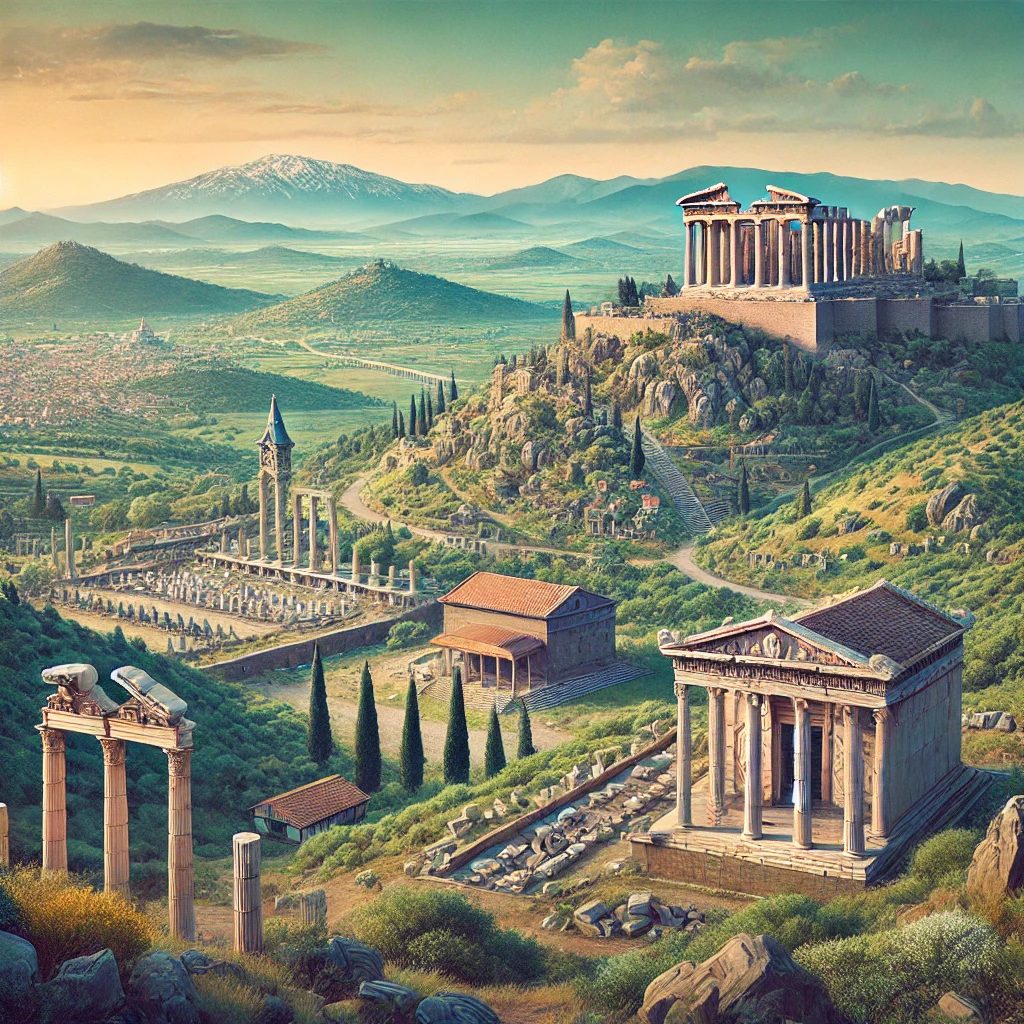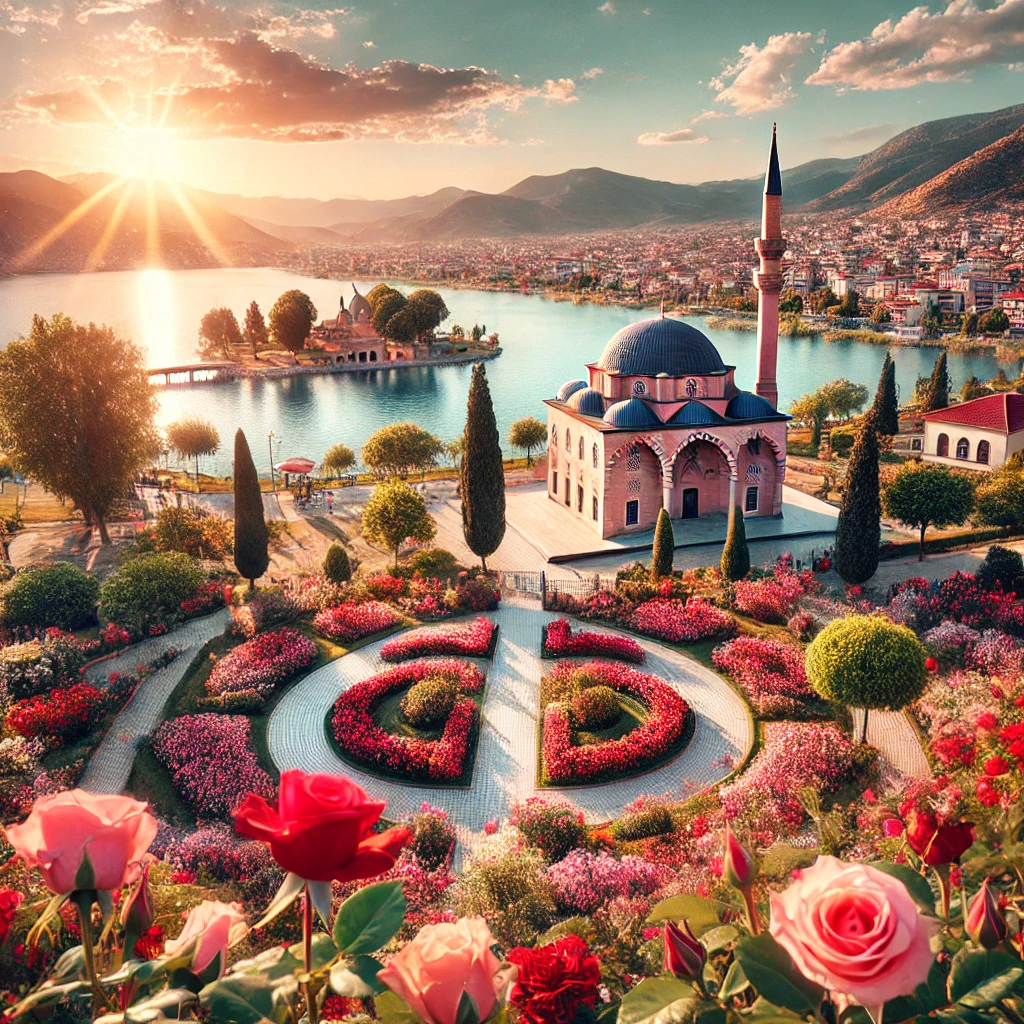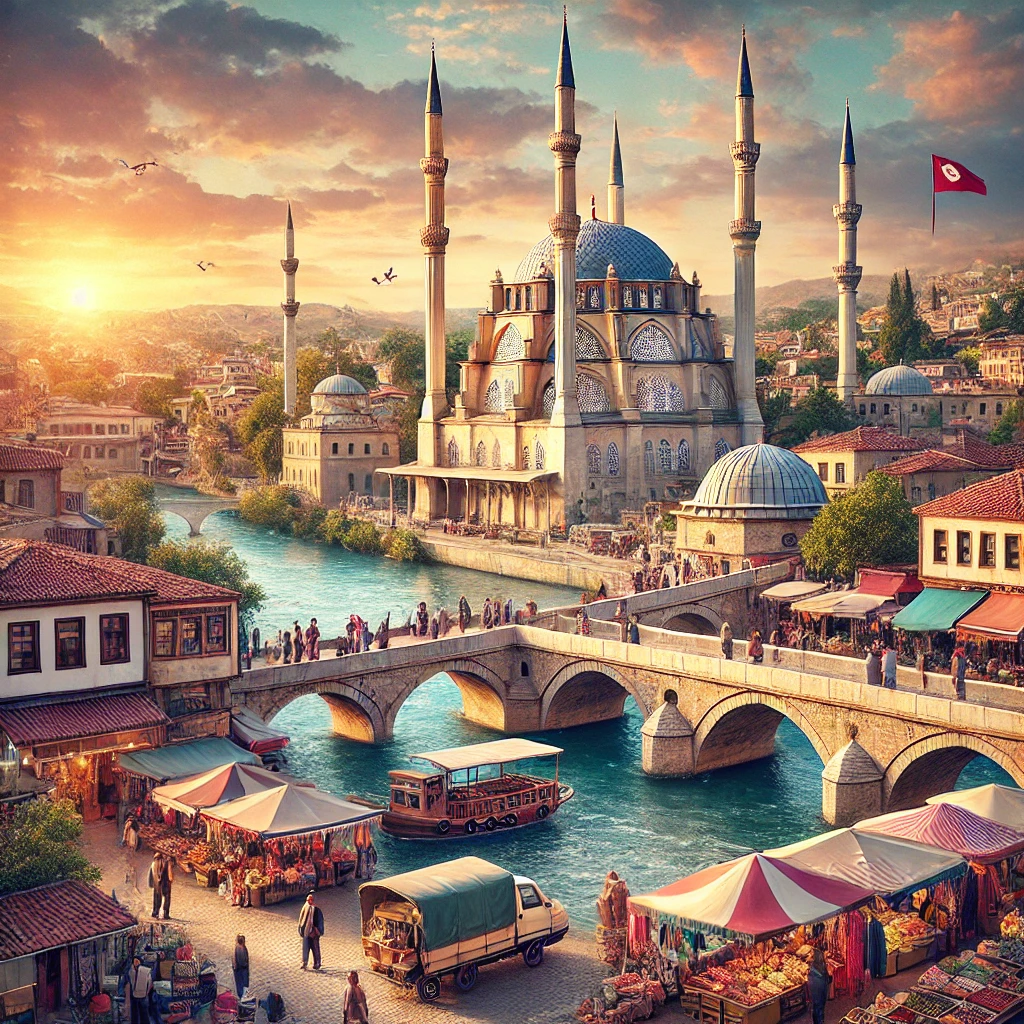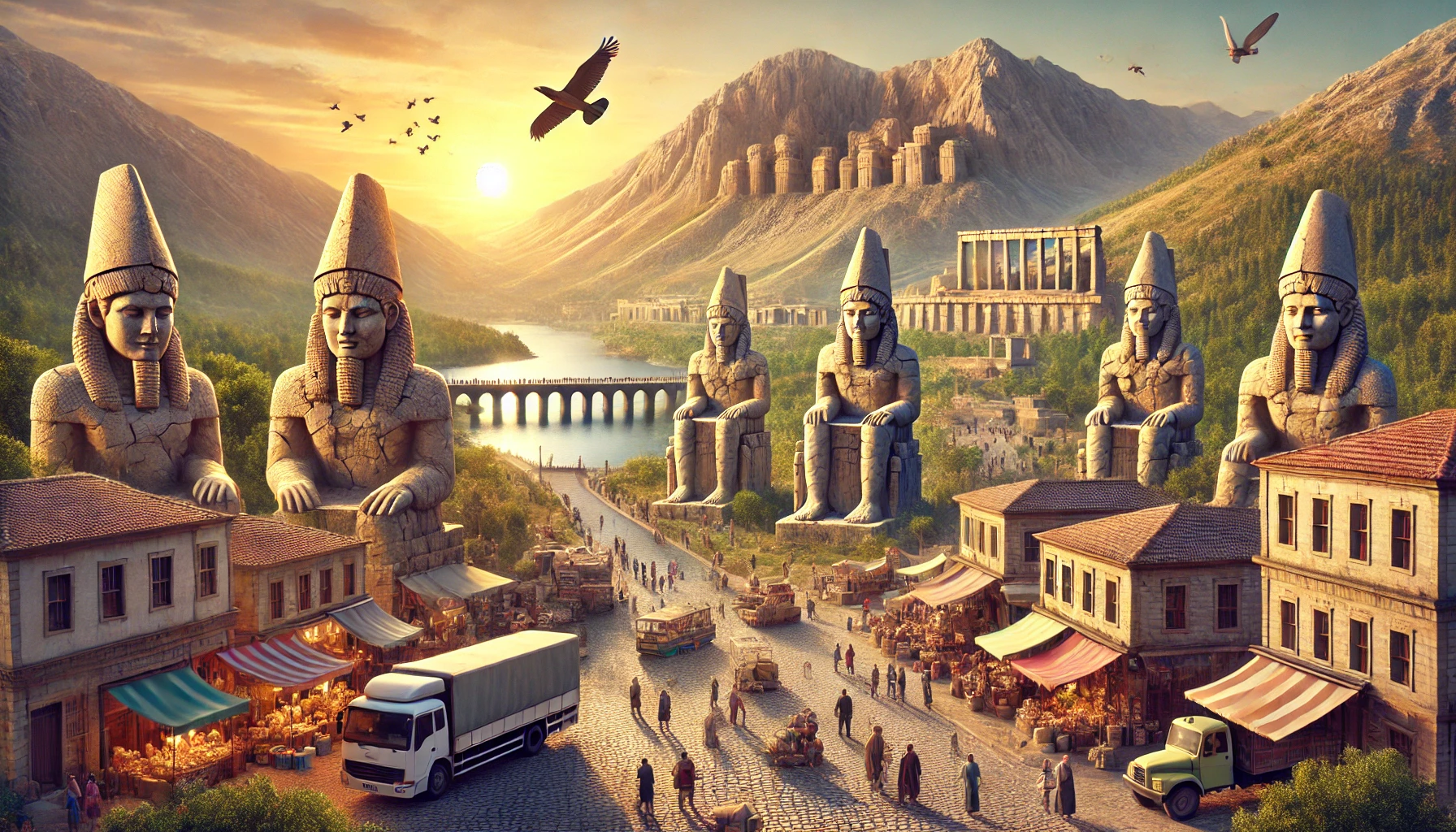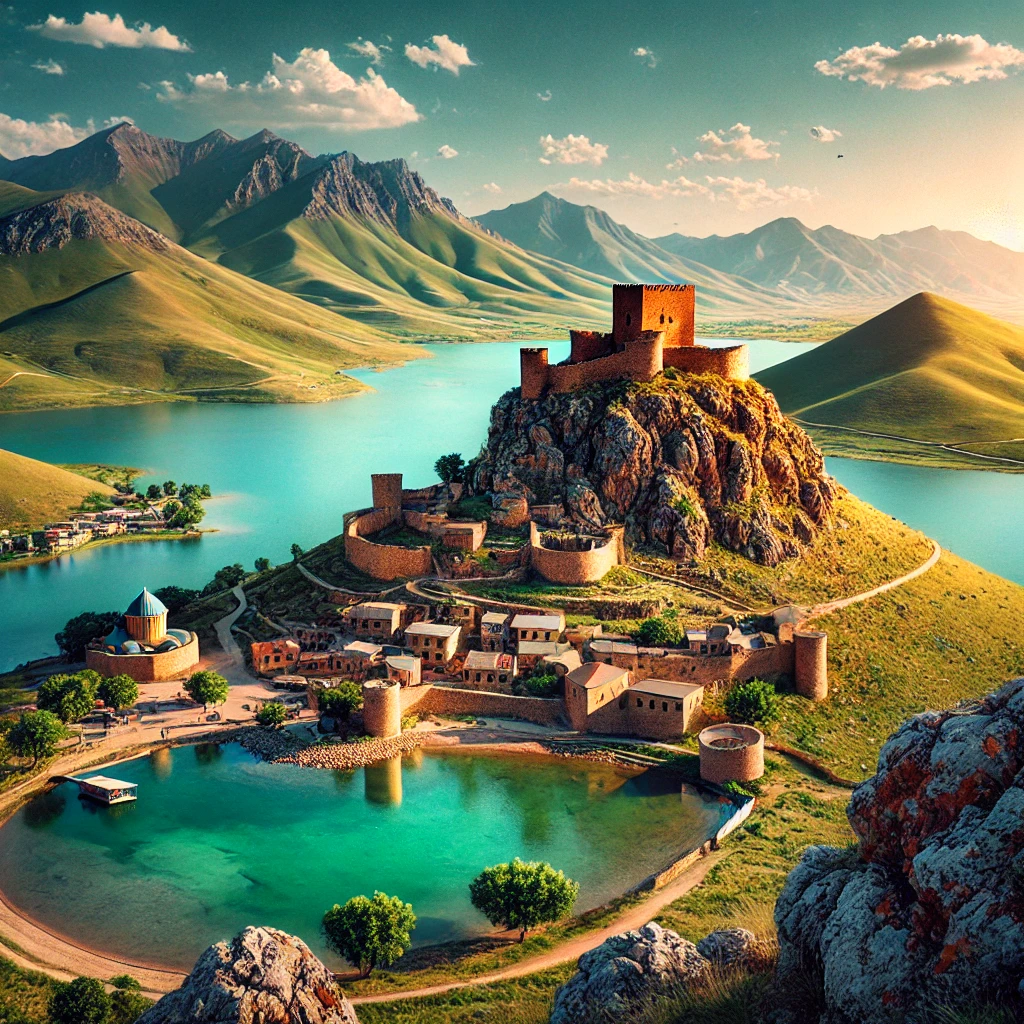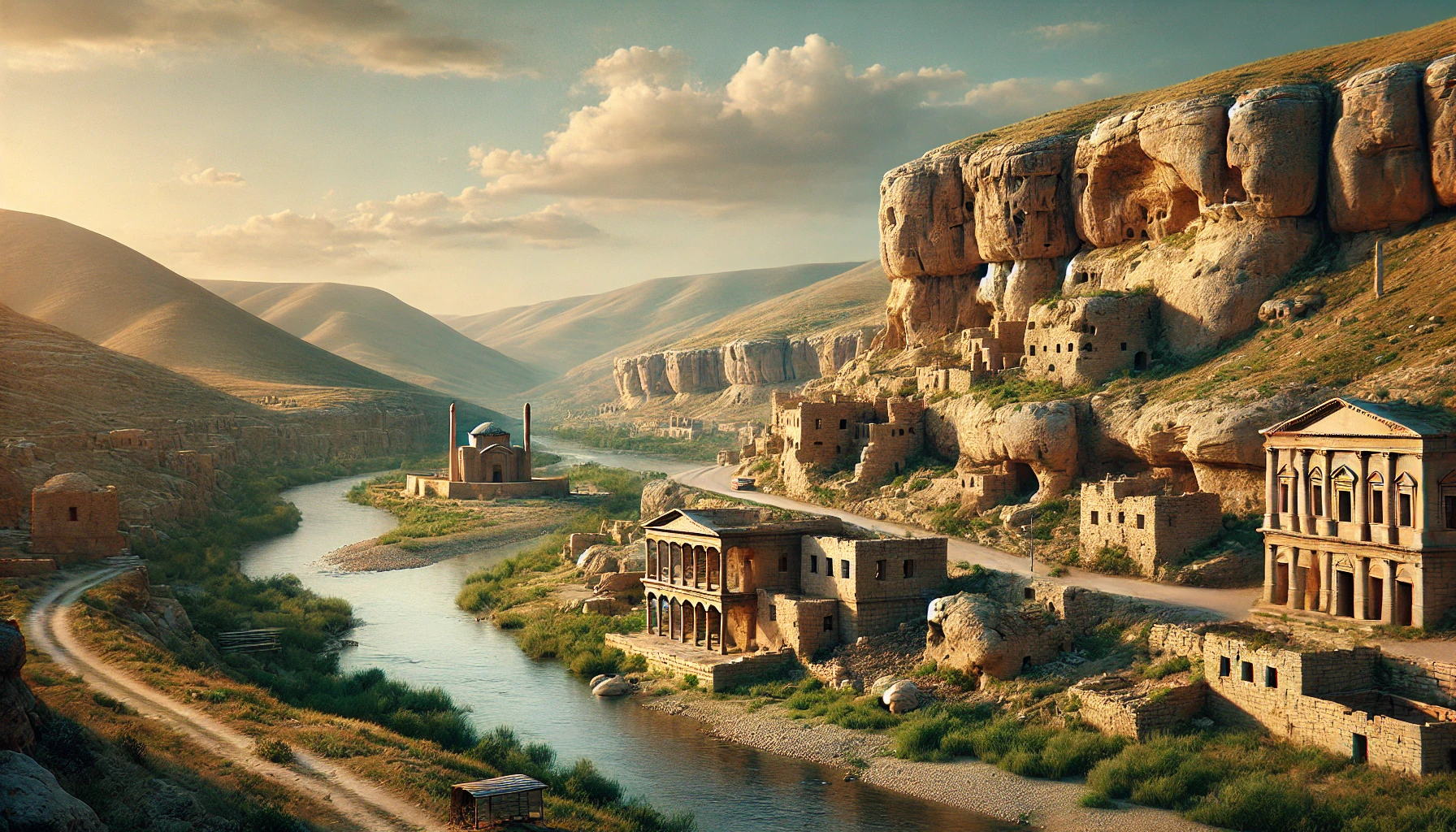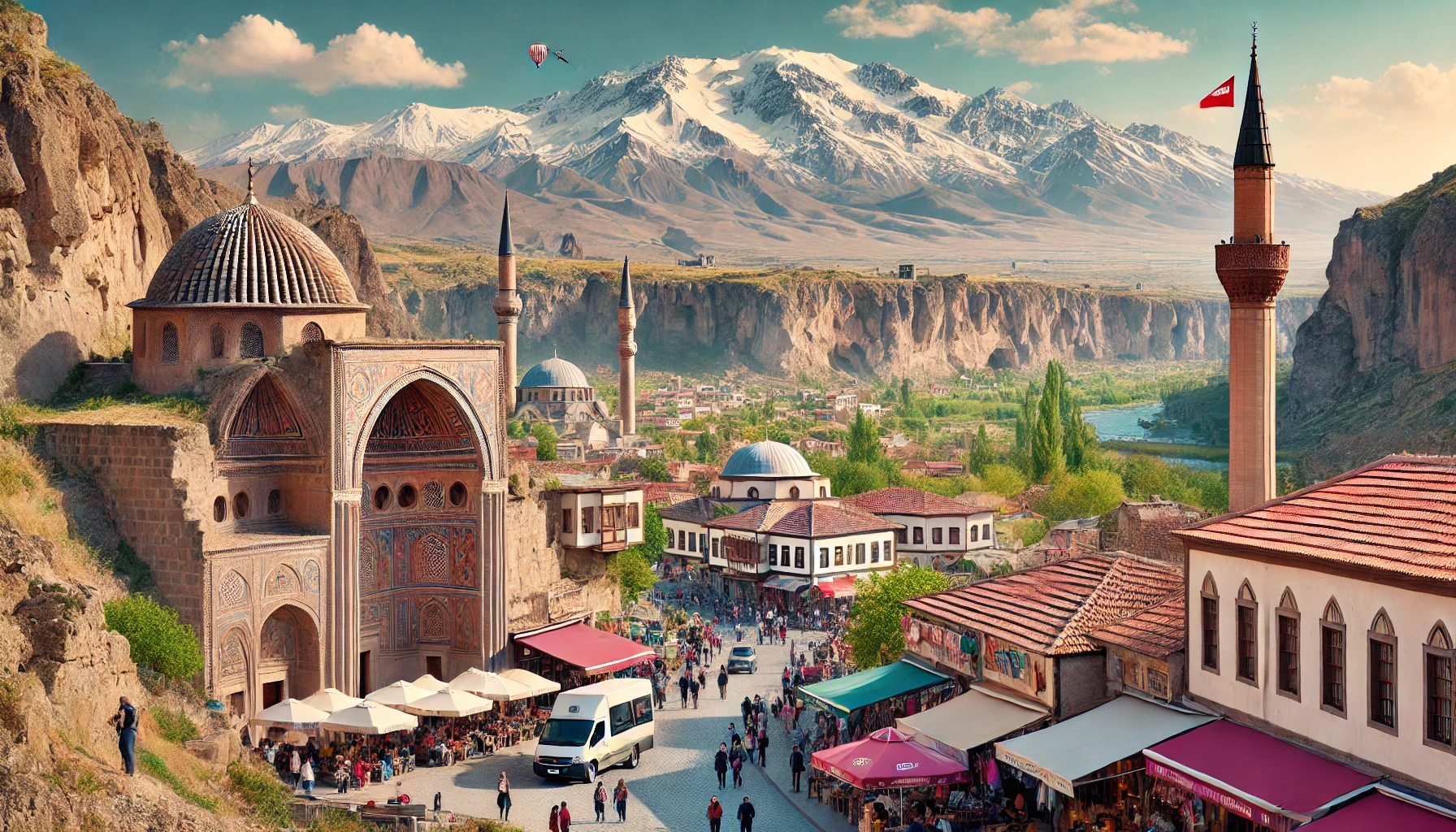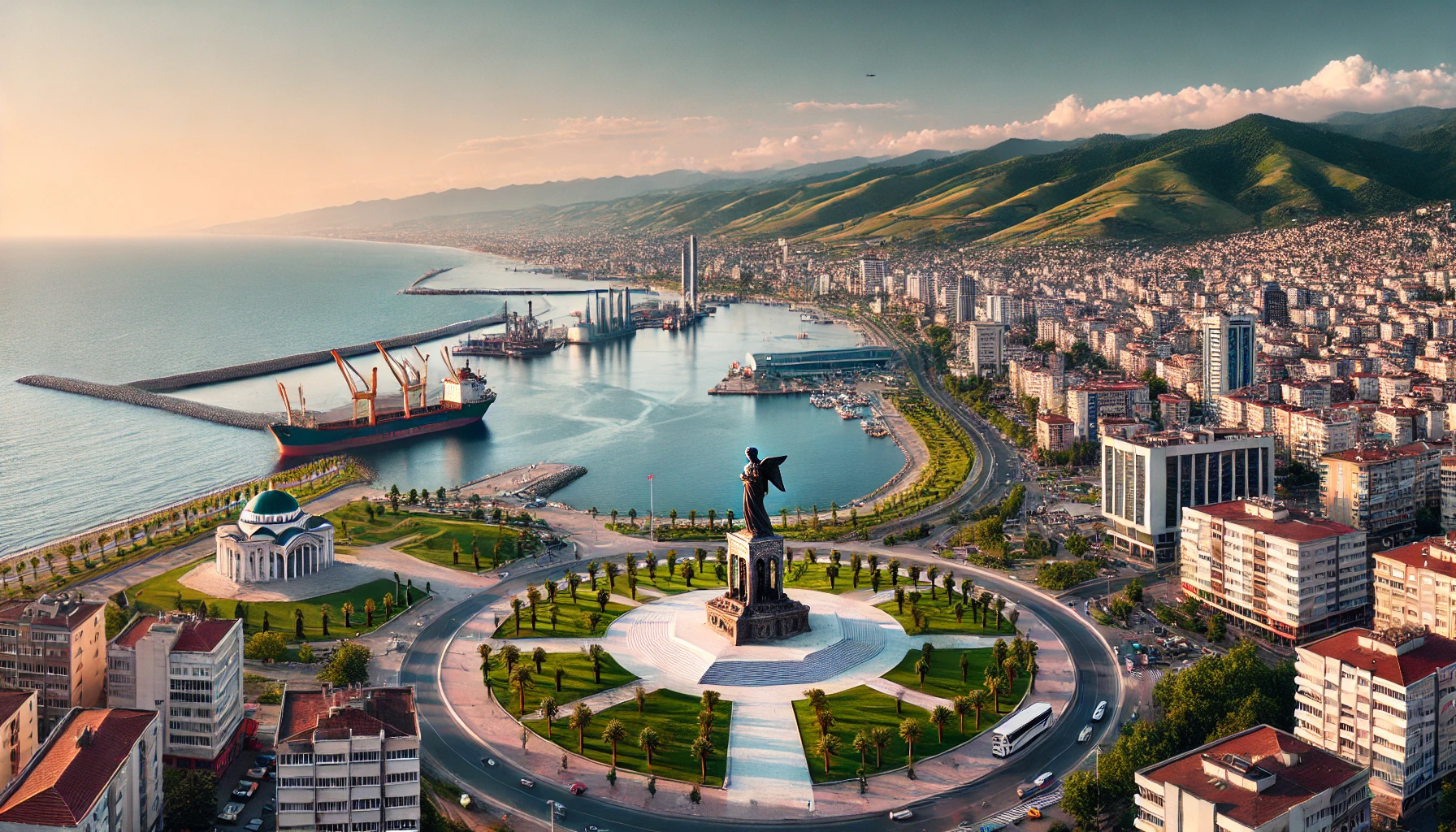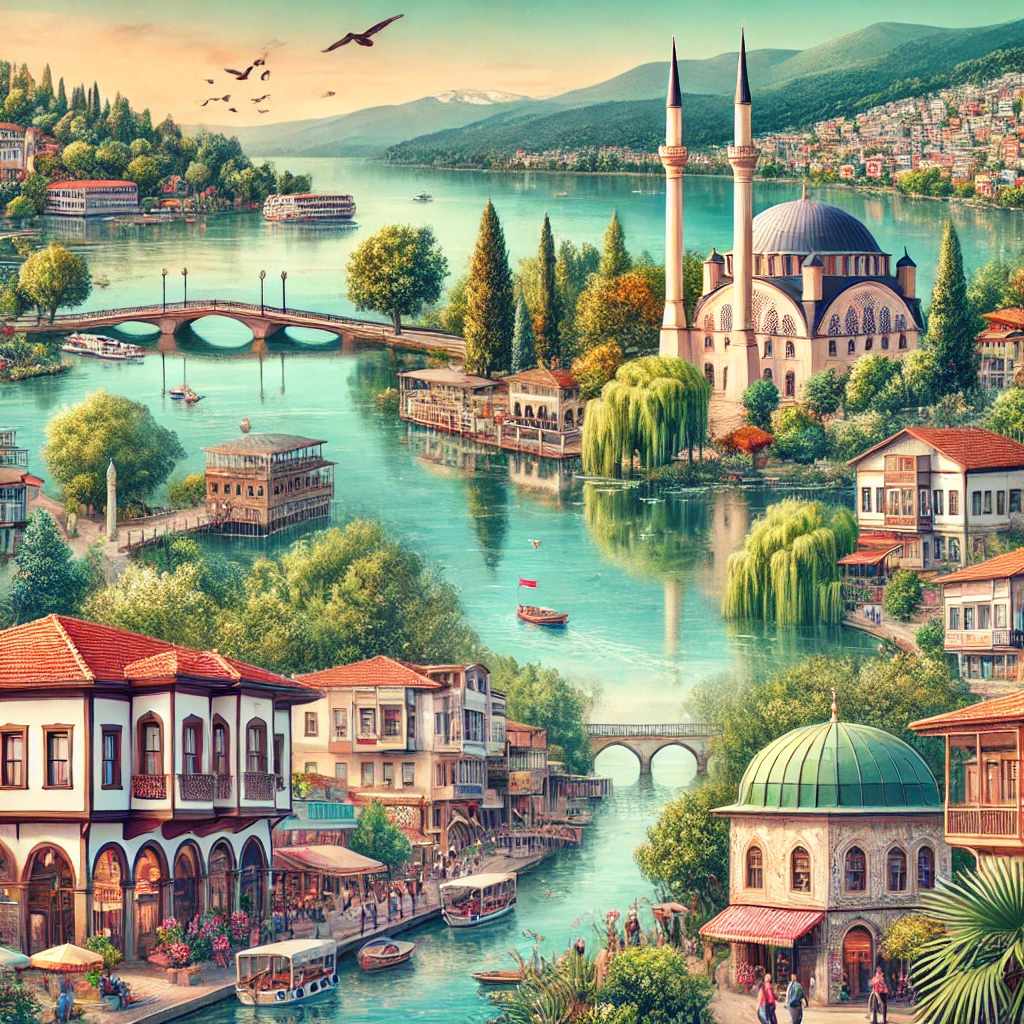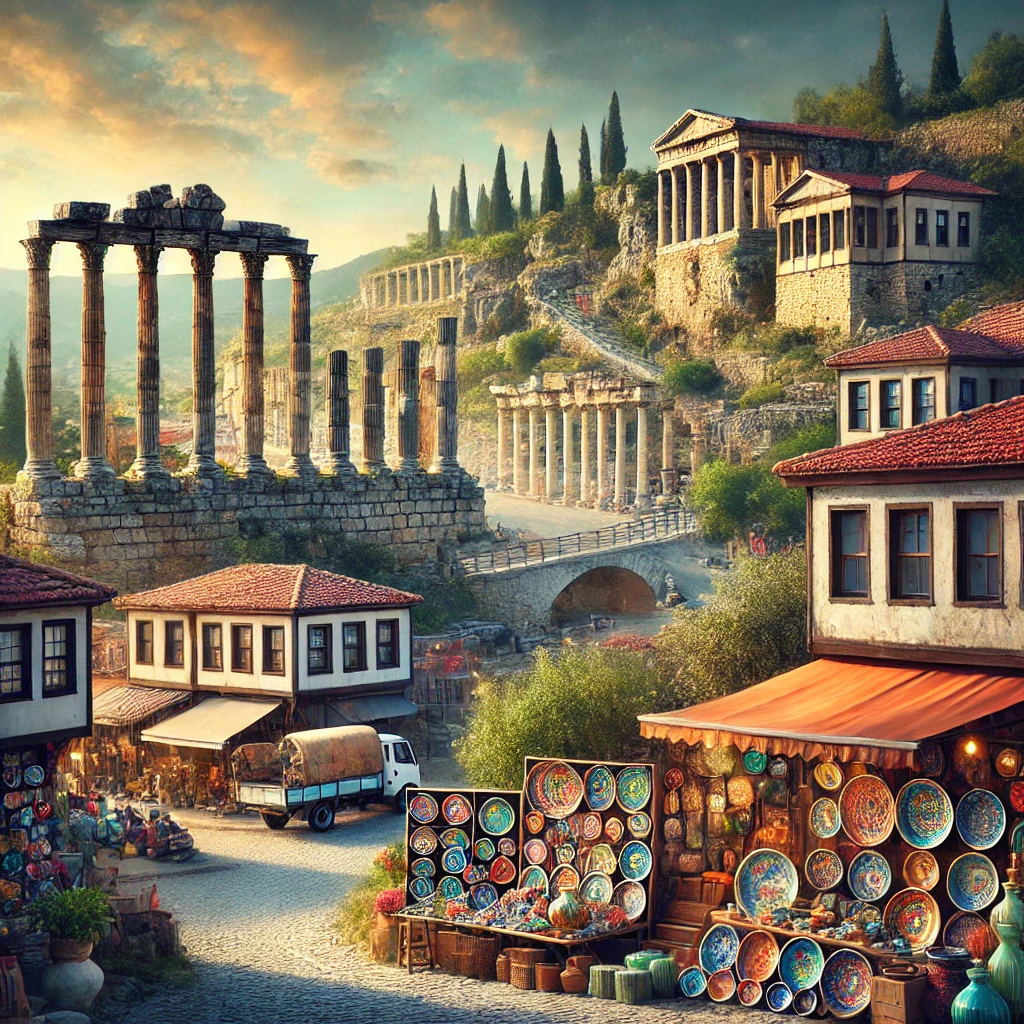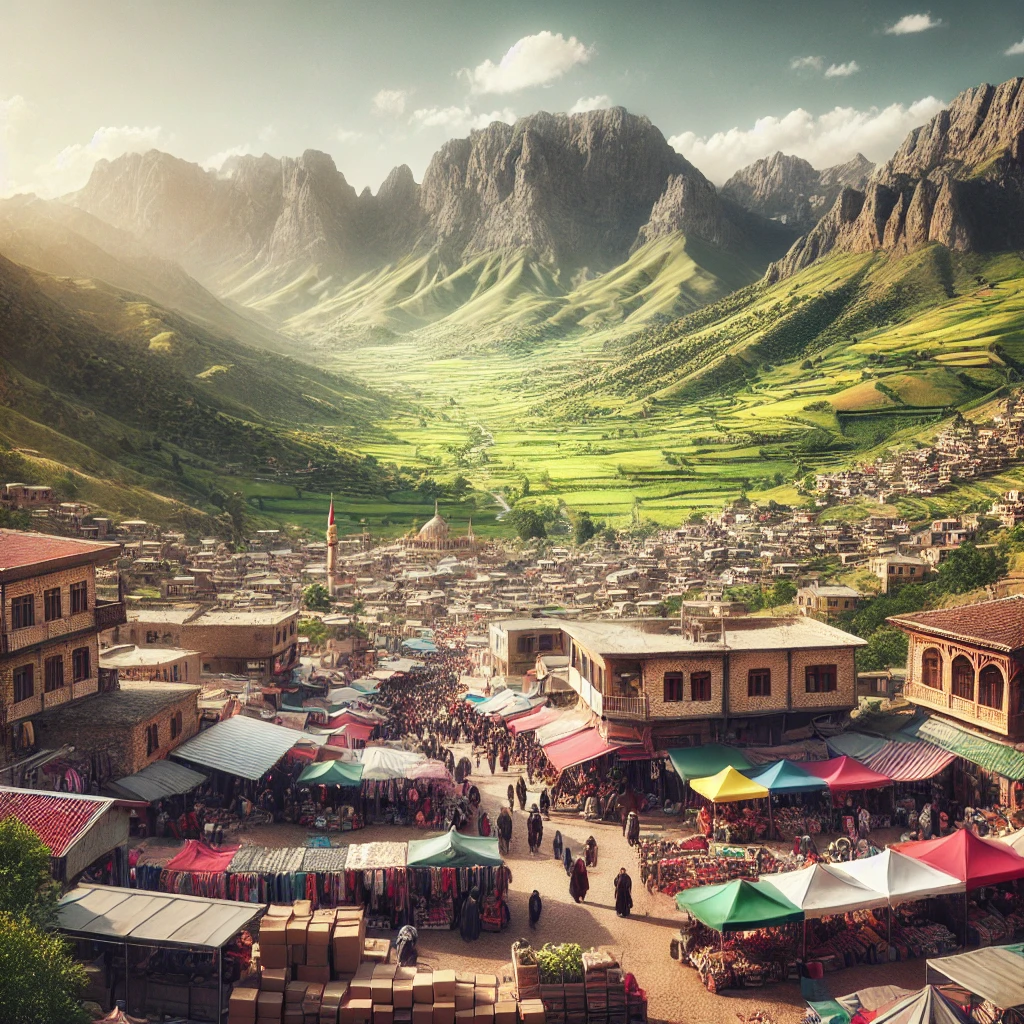Exploring the Ancient Wonders of Bergama, Izmir
Introduction to Bergama, Izmir
Bergama, located in the İzmir Province of Turkey, is a district rich in history, culture, and natural beauty. As İzmir’s largest district by land area, Bergama is known for its significant archaeological sites, including the ancient city of Pergamon, which was a major cultural and political center during the Hellenistic period. This article will take you on a journey through Bergama, exploring its historical landmarks, cultural heritage, and nearby attractions, making it an ideal destination for travelers and holiday enthusiasts.
Historical Background of Bergama
The Ancient City of Pergamon
The history of Bergama is deeply intertwined with the ancient city of Pergamon, which served as the capital of the Pergamon Kingdom during the Hellenistic period. Established on a hill overlooking the Bakırçay Plain, Pergamon was one of the most powerful cities in the ancient world, known for its impressive architectural achievements, including the Altar of Zeus, the Pergamon Library, and the Asklepion, an ancient healing center.
Roman and Byzantine Influence
After the fall of the Pergamon Kingdom, the city came under Roman control and became an important center of administration and culture in the Roman Empire. The Romans continued to develop Pergamon, adding new structures and enhancing the city’s infrastructure. During the Byzantine period, the city faced invasions and was eventually abandoned, leaving behind the ruins that attract thousands of visitors today.
Geography of Bergama
Location and Landscape
Bergama is situated in the northern part of İzmir, within the Bakırçay Basin. The district is bordered by Aliağa to the south, Kınık to the east, and the Aegean Sea to the southwest. The terrain of Bergama is diverse, featuring mountains such as Madra Mountain to the north and Yunt Mountain to the south, as well as fertile plains that support the district’s agricultural activities.
Climate
Bergama experiences a Mediterranean climate, characterized by hot, dry summers and mild, wet winters. This climate is conducive to the cultivation of a variety of crops, including olives, tobacco, cotton, and grapes. The district’s agricultural output is supported by the fertile soils of the Bakırçay Plain, making Bergama an important agricultural hub in the region.
Cultural Significance of Bergama
The Pergamon Altar and Acropolis
The Pergamon Altar, also known as the Altar of Zeus, is one of the most significant archaeological finds in Bergama. Originally constructed in the 2nd century BC, this monumental structure was dedicated to Zeus and Athena and is famous for its detailed friezes depicting the Gigantomachy. Although the altar itself is now housed in the Pergamon Museum in Berlin, its original site remains a popular attraction in Bergama.
The Asklepion of Pergamon
The Asklepion was one of the most renowned healing centers of the ancient world, dedicated to Asclepius, the god of medicine. Patients from across the ancient world came to the Asklepion to seek cures for their ailments, making it an early precursor to modern medical practices. The site includes temples, a theater, and a sacred spring, all set within a tranquil environment that was believed to aid in the healing process.
Population and Economy of Bergama
Demographics
As of 2023, Bergama has a population of approximately 107,133 people. The population is distributed across urban and rural areas, with a mix of residents engaged in agriculture, industry, and tourism. The district’s population has grown steadily over the years, reflecting its importance as a regional center for both economic activity and cultural heritage.
Agricultural and Industrial Economy
Bergama’s economy is primarily based on agriculture, with the Bakırçay Plain providing fertile land for the cultivation of crops such as tobacco, cotton, olives, and grapes. The district is also known for its production of pine nuts, particularly in the Kozak Plateau, which is famous for its high-quality pine nut production. In addition to agriculture, Bergama has a growing industrial sector, including textile manufacturing and food processing.
Nearby Attractions
The Town of Dikili
Located to the west of Bergama, Dikili is a coastal town known for its beautiful beaches, clear waters, and thermal springs. It is a popular destination for tourists seeking relaxation and natural beauty. The town also offers boat tours to the nearby island of Lesbos, providing visitors with a unique opportunity to explore the Aegean region.
The Ancient City of Ephesus
Although not in Bergama itself, the ancient city of Ephesus is located within the İzmir Province and is one of Turkey’s most famous archaeological sites. Ephesus was an important center of trade and culture in the ancient world, and its well-preserved ruins, including the Library of Celsus and the Temple of Artemis, attract millions of visitors each year.
The Kozak Plateau
North of Bergama lies the Kozak Plateau, a region famous for its pine forests and traditional villages. The plateau is an excellent destination for nature lovers and those interested in rural tourism, offering opportunities for hiking, picnicking, and exploring local crafts such as rug weaving and pine nut harvesting.
Conclusion: Explore the Rich History and Culture of Bergama, Izmir
Bergama is a district that seamlessly blends history, culture, and natural beauty. From the ancient ruins of Pergamon to the fertile plains of the Bakırçay Basin, Bergama offers a unique experience for travelers interested in exploring Turkey’s rich heritage. Whether you’re visiting the historic sites, enjoying the natural landscapes, or exploring nearby attractions, Bergama is a destination that promises to leave a lasting impression.
For more detailed information on traveling in Turkey, visit the Travel Guide of Türkiye for comprehensive insights and tips.
Latest Update: Aug 17, 2024
Your Content Goes Here
TAGS: Acropolis, agriculture, Altar of Zeus, ancient city, ancient healing, ancient ruins, archaeological sites, archaeological tourism, Asklepion, Athena, Bakırçay Basin, Bakırçay Plain, Bergama, cultural tourism, Dikili, Ephesus, food processing, Greek mythology, healing center, Hellenistic period, historical landmarks, historical travel, Izmir, İzmir Province, Kozak Plateau, Mediterranean climate, Pergamon, Pergamon Kingdom, pine forests, pine nuts, Roman Empire, rural tourism, textile industry, tourism in Izmir, traditional villages, Turkish culture, Turkish history, UNESCO World Heritage, Zeus
A brief summary of the key points in this article.
Latest Travel Guides
Weather Today in Bergama, Izmir, Turkey
Location: İzmir
Temperature: 9.62°C
Condition: Broken clouds

